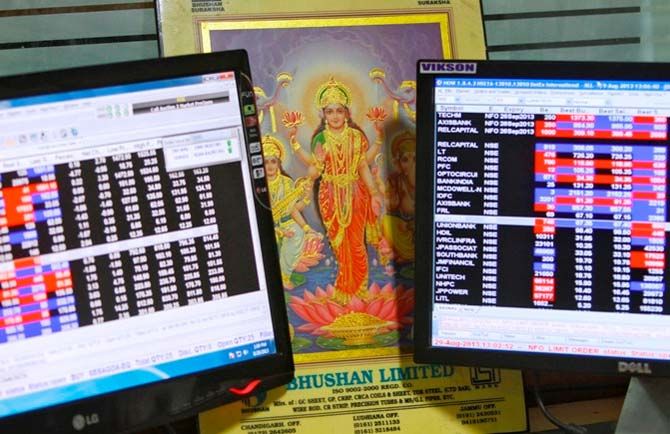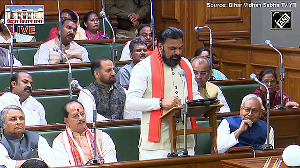The good news is that till the time there is growth in gross domestic product, Indian markets will continue to rise.

The Sensex has risen 26 per cent since February lows.
On Friday, it closed at 28,797.25, around three per cent lower than its all-time high.
Many brokerages have raised their Sensex target to 30,000 by the financial year end. But, this journey will be volatile due to global uncertainties.
In this scenario, what should be the right strategy for investors - should they book profit or stay invested?
Two market experts - share their views on what investors should expect going forward and strategies that can help them tide over volatility.
ANYTIME IS GOOD TO INVEST - Sunil Singhania
Yes, the markets aren’t exactly cheap but we are also not in a euphoric zone.
There are certain pockets in that zone and it is visible. But, there is no reason to panic either.
There could be some positives surprises as well.
The government has gone overboard with positive decisions like passage of irrigation schemes of Rs 80,000 crore (Rs 800 billion) and reforms in the infrastructure segment.
Many technicals, too, support the up-move. Banks seem to be making a comeback after four years and the worst for non-performing assets seems over.
The consumption story should also play out, due to a reasonable monsoon.
While there can be a four-five per cent correction, for the investor any time is a good time to invest.
The good news is that till the time there is growth in gross domestic product, Indian markets will continue to rise.
NIMBLE INVESTORS: RAISE CASH - Jyotivardhan Jaipuria
Our medium-term view of the market remains positive, as we expect a strong earnings rebound to play out.
Market returns should mirror earnings growth of around 15 per cent. But, given the sharp 25 per cent rally since February-end and the fact that valuations are not cheap, should investors book profit?
There is no doubt that investors will have to contend with heightened volatility in the next few months.
There is a greater probability of global factors driving the correction, rather than local ones.
The markets have been too complacent about central banks.
Negative interest rates and a divergence in central bank policies can shake this complacency for the first time since 2008.
Nimble investors can raise some cash and wait for corrections to put that money to work.
The key for investors is going to be patience through the volatile phase.
Sunil Singhania is CIO (equities), Reliance MF and Jyotivardhan Jaipuria is founder & MD, Veda Investment Managers.







 © 2025
© 2025